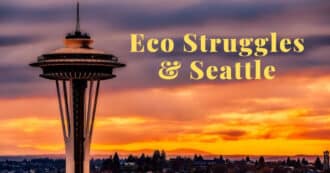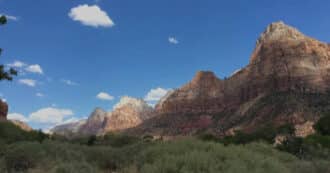By Rainer Hagencord and Tanja Mancinell
In the beginning, God created heaven and earth, light, water, vegetation and – even before humans – all the animals in the sky, on the earth and in the water. And finally Adam and Eve. Animals have been part of creation from the very beginning. They were the first creatures blessed by God. Accordingly, the Bible teaches us to treat animals with kindness and respect. They were teachers to the Prophets and guides to humans. Christian Saints´ biographies contain an abundance of stories about close relationships between saints and animals, which cared for, protected and accompanied their human friends.
However, the situation of animals in our modern world starkly contrasts with what the Bible tries to teach us regarding the treatment of non-human beings:
Every day, around 180 million land animals are killed for food worldwide. Each animal that ends in the slaughterhouse suffers enormously there, after having been denied an appropriate life. “Modern-day animal agriculture violates core Christian values. It wipes out entire populations and species of wildlife, confines huge numbers of animals in miserable conditions on factory farms, damages the environment, squanders scarce resources, and harms the health of people.”1
How come that we are often blind to this suffering? Why does the church not take a stronger stand in this matter? And what can we do from a religious point of view, to avoid animal suffering through industrial farming, which causes so much pollution and contributes to climate change?
These and similar questions motivated the theologian, Catholic priest, biologist, and philosopher Rainer Hagencord to blaze a new trail: In 2009, he founded the Institute for Theological Zoology (ITZ) in Muenster, Germany, together with the Swiss Franciscan Anton Rotzetter.
The institute aims to show that according to the Bible, animals possess souls, too, and are therefore entitled to a dignified life. The institute connects biology with theology, showing that the two fields are not in opposition, but rather complement each other. Biology helps us to better understand the animal realm; it shows that animals possess as much intelligence and sensibility, and as many emotions, as humans do. And religions remind us that human beings and animals are equal creatures of God.
In 2009 Dr. Jane Goodall became the patron of the ITZ, which was awarded for its work by the United Nations in 2020 (UN Decade on Biodiversity).
In cooperation with the local university, the ITZ provides teaching materials for schools and universities and collaborates with Jewish, Muslim, and Christian theologians.
Hagencord`s message is the need for a spiritual ecology: “If we don’t remember the story of Noah’s Ark now, then when? We have to save the animals and become peaceful and caring human beings to prevent the extinction of many species.”2
Only in this way can the prophecy of Isaiah be fulfilled: the creation of a world where the animal kingdom will be included in the blessing of peace, “for the earth shall be full of the knowledge of the Lord.”3
Rev. Dr. Rainer Hagencord is a Catholic priest and director of the Institute for Theological Zoology. Tanja Mancinelli is working on a PhD at the University of Wales Trinity St. David on Islamic Environmental Ethics. She interned at The Interfaith Center for Sustainable Development.
1 https://www.humanesociety.org/sites/default/files/docs/replenish-booklet-in-color.pdf
2 Hummel Thomas (2020): Ich verstehe nicht, warum munter weiter Fleisch gekauft wird. In: Süddeutsche Zeitung, https://www.sueddeutsche.de/panorama/fleisch-glaube-ethik-weihnachten-1.5152670
3 Isaiah 11:6-9
*Featured image source





